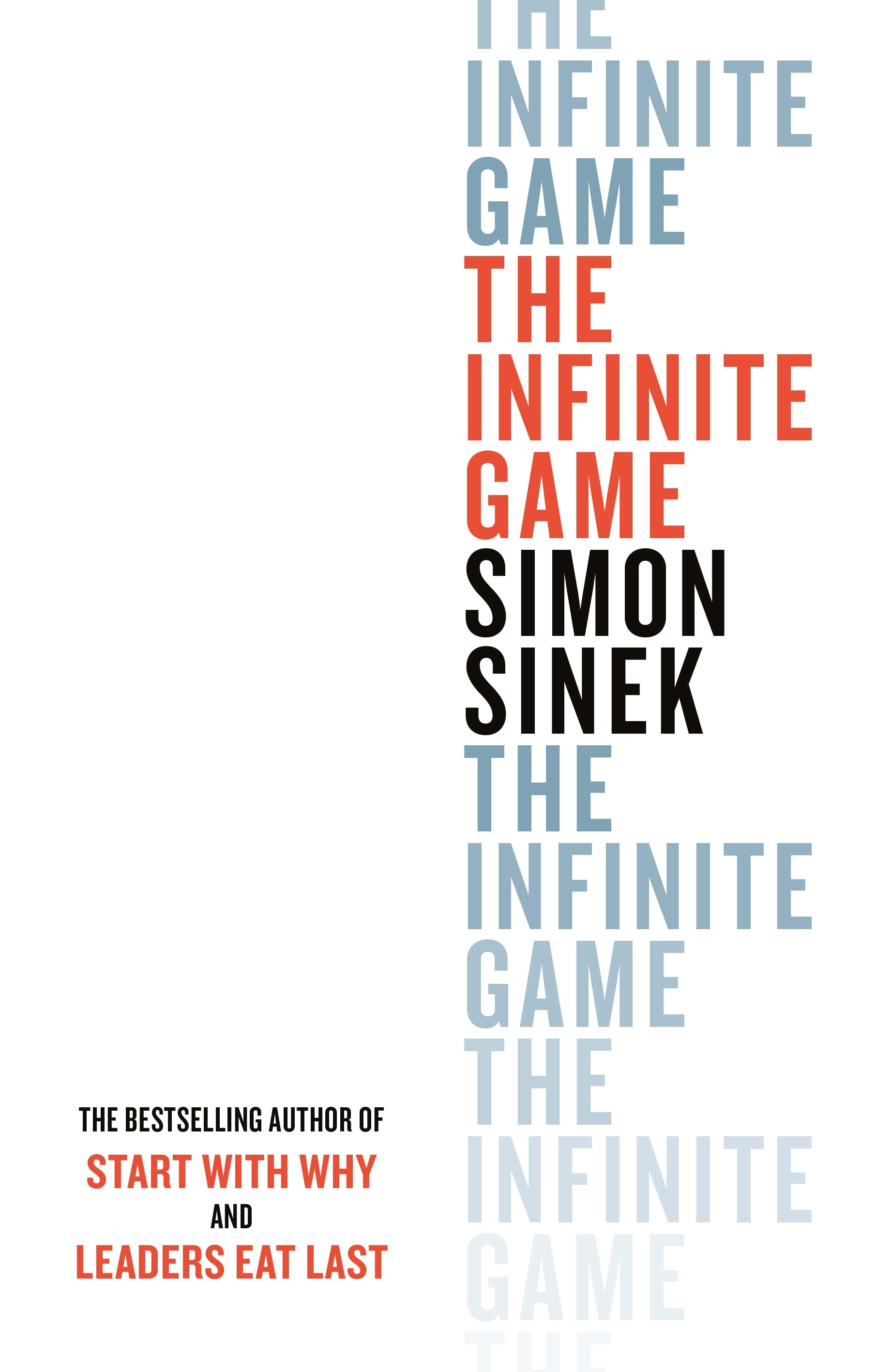
The Infinite Game
This book is about convincing business leaders to live with an “infinite” mindset - to live a life of service - while dissuading them to live with a “finite” mindset - which means trying to get richer or promoted faster than others. The key points from the book were:
- Adopting an infinite mindset requires five essential practices:
- Advance a just cause
- Build trusting teams
- Study your worthy rivals
- Prepare for existential flexibility
- Demonstrate the courage to lead
- A Just Cause is:
- For Something: Affirmative and optimistic
- Inclusive: Open to all those who would like to contribute
- Service Oriented: For the primary benefit of others
- Resilient: Able to endure political, technological and cultural change
- Idealistic: Big, bold and ultimately unachievable
- The definition of the responsibility of business should be:
- Advance a purpose: Offer people a sense of belonging and a feeling that their lives and their work have value beyond the physical work.
- Protect people: Operate our companies in a way that protects the people who work for us, the people who buy from us and the environments in which we live and work.
- Generate profit: Money is fuel for a business to remain viable so that it may continue to advance the first two priorities.
- Ethical fading: a condition in a culture that allows people to act in unethical ways, often to advance their own interests at the expense of others, while falsely believing that they have not compromised their own moral principles.
- Self-Deception:
- Euphemisms to disassociate ourselves from the impact of decisions or actions we might otherwise find distasteful or hard to live with.
- Removing ourselves from the chain of causation e.g. blaming the system.
- Slippery slope: with each transgression, we pave the road for more and bigger ethical transgressions.
- Worthy Rivals are valuable:
- They help us get better at what we do
- They help us get clearer on why we do what we do
The author oversimplified things by defining only two types of mindsets (“infinite” and “finite”) and presenting them in rather absolute terms: the finite mindset leads to [insert negative outcome here], while the infinite mindset leads to [insert positive outcome here]. Readers ought to be sceptical, and focus on the good things about this book: it tells us what it means for businesses to be ethical and pursue a just cause.